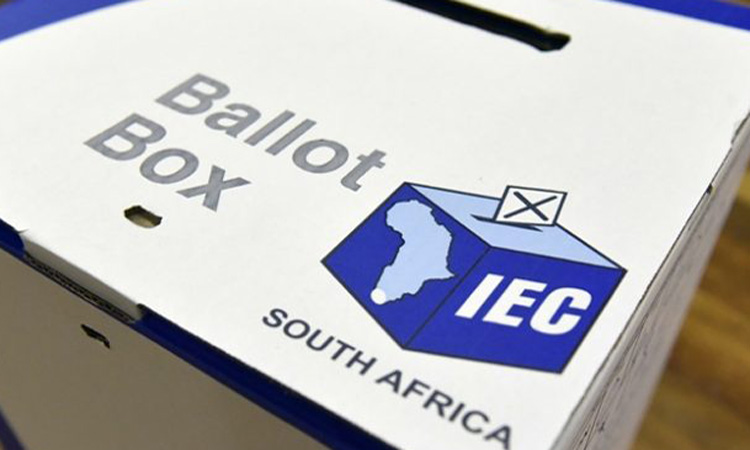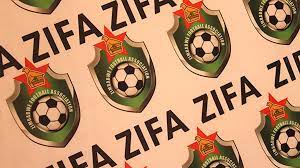SA local election count begins amid turnout nosedive

The Electoral Commission of SA looks at keeping certain stations open past closing time on a ‘case-by-case basis
Poor turnout, IT glitches, service delivery protests and voters roll failures marred the 2021 local government elections, which officially closed at 9pm on Monday night.
Incensed political parties have bemoaned the shortcomings in how the Electoral Commission of SA (IEC) has managed the process.
During a briefing after 8pm IEC officials indicated the body would consider keeping a few stations open past the cut-off time on a “case-by-case basis” based on the circumstances. Select voting sites would be allowed to stay open later, due to protests or other hiccups that hampered smooth voting.
Two hours before the cut-off time, only 8-million of the 26.2-million registered voters had marked ballots, which amounted to little over 30% turnout by that time.
IEC commissioner Nomsa Masuku assured those standing in line at polling stations by 9pm they would be processed into the night.
She said the IEC would begin counting ballots from 9pm and the first results would roll in from early Tuesday morning.
Already, some analysts have attributed low turnout to voters’ apathy, workers being on shift and others prioritising rest over a long weekend.
Speaking from the IEC’s results centre in Pretoria on Monday afternoon, the ANC’s deputy secretary-general Jessie Duarte urged voters to participate in the polls.
“We need more people to go and vote. We need all of those who have not as yet left their homes to go and vote now before it is too dark,” she said.
Duarte urged retailers and small business owners to end shifts by 6pm so workers could partake in a “very important election” for SA.
By nightfall in Khayelitsha’s Site C in Cape Town, the Western Cape, drivers were proceeding through the neighbourhood flashing lights and hooting at ANC supporters outside their homes.
Earlier, opposition parties had pressed for a waiver of the national lockdown curfew of midnight. In the afternoon, IEC and political parties hashed out extending the closure of voting after days of issues with the voters roll.
Siviwe Gwarube, the DA’s spokesperson, said the curfew was “an imposition that should be waived tonight [Monday] considering the fact that the voting stations close at 9pm and there have been widely reported delays with the IEC”.
“South Africans should not suffer because there have been incompetencies of both the government and the IEC,” said EFF national spokesperson Leigh-Ann Mathys.
According to the IEC, since a lunchtime press conference on Monday challenges with the voters roll — which first manifested during two days of special votes at the weekend — were the topic of engagements behind closed doors.
While IEC and political party officials hold permits for working beyond the curfew, what will become of voters at stations — and thus in breach of curfew — after the strike of twelve was not immediately clear.
Though voting officially ended at 9pm, stations with exceptionally long queues continued helping voters and, in some cases, were likely to work past the midnight.
At current lockdown level one it is a contravention, in terms of the lockdown regulations under the National Disaster Management Act, for non-essential workers (and those without permits) to be out from 12pm to 4am.
“We do not envisage voting to go beyond midnight. If it does it will be an exception and we will deal with those exceptions as they arise,” said the IEC’s senior operations manager Granville Abrahams.
By Monday afternoon, prominent ANC leaders including treasurer-general Paul Mashatile and former Johannesburg mayor Parks Tau were out in full force in Soweto in an effort to stir support before the 9pm cut-off.
The EFF’s Mathys said, “Lockdown regulations should never, ever be given priority over your constitutional right that is enshrined in the constitution of SA.”
The Independent Electoral Commission says it’s happy with how the local government elections have gone despite some technical glitches and allegations of tampering with ballot boxes. IEC’s Sy Mamabolo fills us in on the latest.
While the DA and EFF remain divided on ideological grounds, they agreed that curfew should be lifted for those in queues at cut-off time, with the EFF blaming the IEC for poor management of some stations.
“We have seen a lot of stations have opened late. They don’t have enough staff,” said Mathys.
“Ultimately, the ability of South Africans to exercise their right to vote should supersede any arbitrary curfew that has no health benefits,” Gwarube said.
Police spokesperson Vish Naidoo, who also speaks on behalf of the National Joint Operational and Intelligence Structure (NATJoints), which is tasked with monitoring and mitigating violence during elections, said police would guard stations until they closed.
“As long as a voting station remains open our police officers will be there,” he said. Naidoo explained that where an IEC’s presiding officer was authorised by the body to keep a station open, police would remain on site.
Naidoo said the police would be guided by the IEC as to what would be the latest time voting stations would have to close. “For those stations that have opened late we will wait for guidance from the IEC. I am not yet aware of any decision having been taken regarding that,” he said.
Terry Tselane, executive chair of the Institute of Election Management Services, anticipated the 9pm cut-off would hold but the police would be lax on enforcing curfew in light of various challenges on voting day.
“I don’t think the government is going to be that strict in terms of making sure that they implement the curfew rules,” he said.
Tselane was of the view that while there might be short-term leeway on the midnight curfew, another full day of voting was out of the question in light of a Constitutional Court order and the law around when local government polls must occur.
“What is even worse is that [Monday] is the last possible date within which the elections should take place. So, you cannot even say you are going to have it tomorrow. Because tomorrow, it will be outside the constitutionally stipulated period,” he said.
A call to the spokesperson for the minister of co-operative governance and traditional affairs, Nkosazana Dlamini-Zuma, went unanswered.
–-Business Day







